Molly’s Game is a good movie… with a big script problem.
(Actually, it has three story problems, and they’re all connected.)
But there is good news. The film, a fast-paced legal thriller with impressive performances by Jessica Chastain, Idris Elba, and the entire supporting cast, is very well-made.
Molly’s Game is smart, fast-paced, and frequently fun.
In other words, it’s… fine.
But what Molly’s Game isn’t, unfortunately, is a must-see movie.
Now, to be fair, the script is well-written. I won’t even argue against its Oscar nomination for Best Adapted Screenplay. (Honestly, I’d be surprised if an Aaron Sorkin screenplay didn’t get nominated.) But the Academy was right to honor Jordan Peele’s Get Out with the win instead.
The real problem is that Molly’s Game is missing a crucial ingredient that every story needs in order to grip an audience both logically and emotionally.
And I actually think these storytelling problems were nearly unavoidable in this case.
It’s hard enough to maintain your critical distance when a writer is directing from his own script, as screenwriting legend Aaron Sorkin (The West Wing, The Social Network) does here in his directorial debut.
But when that script is also based on the life story of the very-much-still-alive-and-watching Molly Bloom, it’s nearly impossible for Sorkin or Bloom to evaluate their story with the same impartial audience POV that a total outsider would have.

The real-life Molly Bloom, with writer-director Aaron Sorkin and Stringer Be… er, Idris Elba
So, first, let’s touch on what Molly’s Game does well — which, admittedly, is quite a lot.
(In fact, the film comes so close to being great that its story flaw is doubly frustrating.)
Then, we’ll look at the storytelling missteps in Molly’s Game, and see if they can explain why such a well-crafted A-List film — which was nominated for major awards at the Golden Globes, BAFTAs, and DGAs — still struggled at the box office.
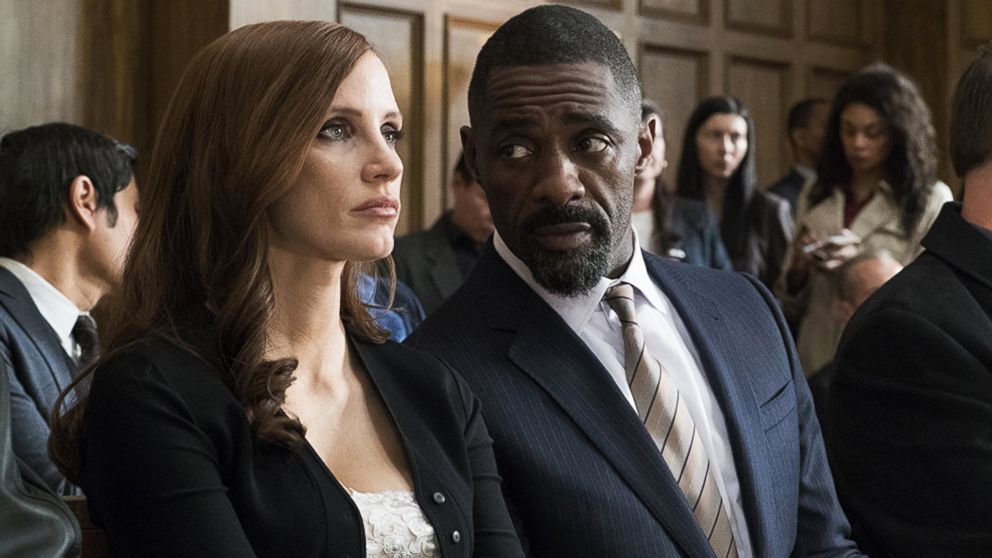
What, me worry?
Here’s What Molly’s Game Gets Right
First, let me make one thing super-clear:
Molly’s Game is an otherwise well-written movie with a big unfortunate flaw.
The dialogue is exactly what you’d expect from a Sorkin script: dense, complex, self-aggrandizing, and literary. For better or worse, no one else does dialogue quite like Aaron Sorkin, which would make Molly’s Game worth seeing just for that benefit alone.
The characters are clearly-defined. Even the smallest supporting roles include quirks that help each character stand out, which is vital for a story that expects the audience to keep track of nearly two dozen recurring characters, almost all of whom are only ever seen around a card table.
Wisely, the script essentially places us in Molly’s POV right from its very first scene. This lets us learn the game of poker as Molly learns it, which allows Sorkin to explain key terms as if the whole audience is new to the game. Thus, both a poker expert and a complete poker newbie can each appreciate the story at their own pace, because the script doesn’t talk down to us; it expects us to keep up.
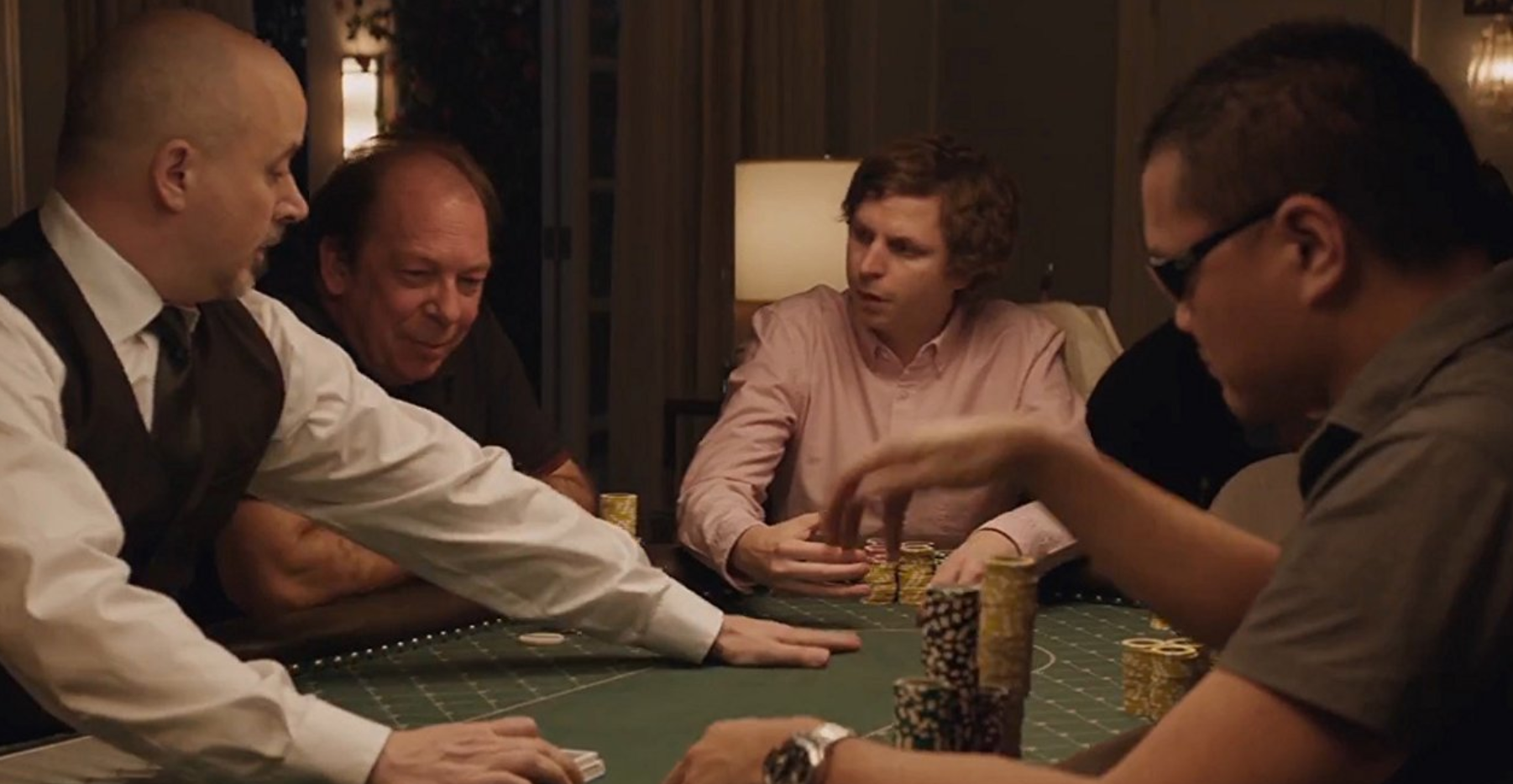
Michael Bluth would never approve… or… no, actually, he probably would
Lastly, the pacing is brisk and balanced. Exposition-heavy sequences are often bookended within character-driven anecdotes, which means the audience often learns something abstract at a macro level and then sees it paid off at the micro, interpersonal level.
For example, when Molly starts running games in New York, we need to understand what’s different about the players and the stakes in NYC vs. her previous games in LA.
To help establish this, Sorkin introduces the character of Cole (Joe Keery), a trust fund kid whom Molly catches cheating with the help of security cameras. When she busts him, Cole mentions that the other players will flip out if they realize her games are being recorded. Molly navigates this conflict by negotiating with Cole in good faith. This trade-off, like every conflict in the film, underscores the film’s central theme: Molly is a straight arrow who only ever bends toward the dark side in cases of self-preservation when the stakes around her raise to dangerous levels.
And this, in a nutshell, is also where the script for Molly’s Game goes wrong.
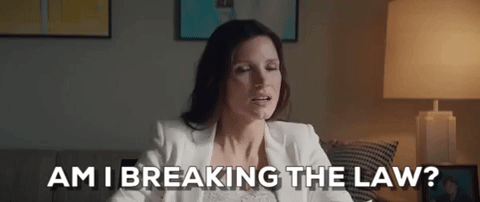
I mean, if you have to ask…
The Three Storytelling Problems in Molly’s Game
As I said, the film’s three big problems are interconnected, and they all stem from one core flaw:
The character of Molly is essentially presented as perfect.
I don’t mean that Molly doesn’t make mistakes, or that bad things don’t happen to her. She does, and they do. (Hell, the whole film revolves around whether or not she’s going to end up broke, incarcerated, or both.)
But when bad things do happen to Molly, we’re not as emotionally invested in their resolution as we should be.
Why not?
Because Molly’s Game presents Molly as a character whose resilience and adaptability are never in doubt.
Here’s why that backfires.
(NOTE: Spoilers ahead for Molly’s Game … and, weirdly, for the 2013 film Gravity.)
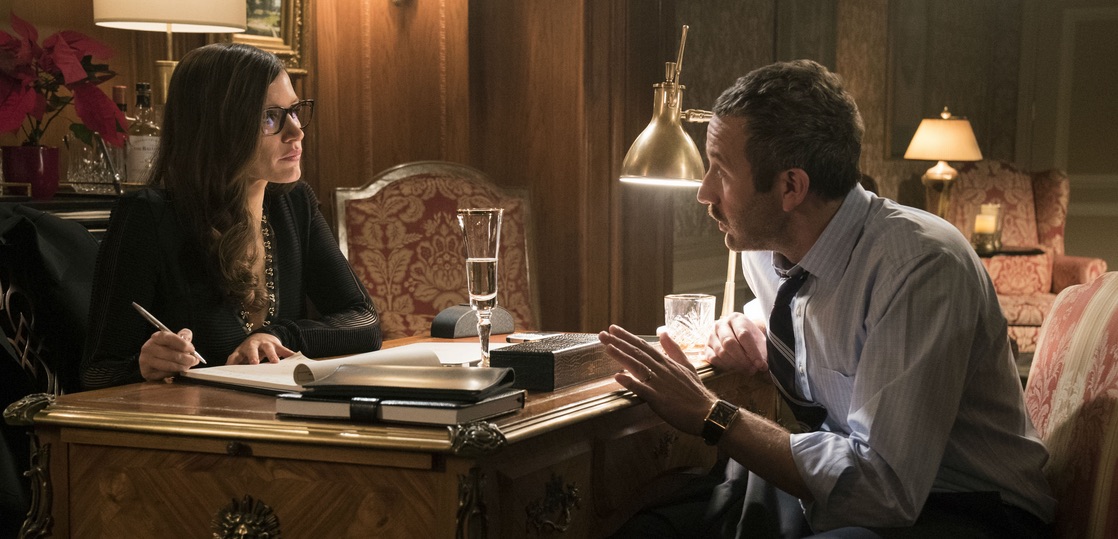
Victim of circumstance.
The Plot’s Stakes Are Never Clear
What do you need in order to create clear stakes in any story? Three things:
- Establish what the character wants — their goal or desire
- Establish what’s preventing the character from achieving their goal
- Establish what will happen if the character doesn’t achieve their goal
Unfortunately, Molly’s Game comes up short in all three areas.
The movie opens with a lengthy anecdote that establishes Molly’s indomitable personality. Her father, a domineering perfectionist, raised her to be an Olympic-level skier. She even overcame painful spinal surgery to qualify for the Olympics, but a freak accident during the qualifying trials sends her down a different life path instead.
The lesson? Molly is someone who can literally suffer two life-altering, bone-crushing defeats in her life before she even graduates college and still come out swinging.
In Los Angeles, Molly unintentionally learns how to run poker games from her boss, a well-connected LA hustler who brings together rich celebrities for huge bets. He’s bad at organization and project management, so Molly runs the details of his games, from the money to the atmosphere. When their relationship sours (because her boss is an insecure dick), Molly steals his game and makes it her own… and all the players go with her.
Does anything bad happen to Molly as a result of this? No, because Molly is always better prepared than her opponents.

Molly Bloom is not here for your bullshit.
When she loses her LA game (because her new business partner is also a dick), Molly refuses to let this twist break her spirit. Instead, she moves to New York with the goal of building an even bigger game there.
The lesson? No matter what happens to Molly, she’ll keep going until she gets what she wants.
Her New York game eventually collapses when it turns out some of her players are (whoops!) connected to the Russian mafia, and federal investigators assume Molly has been knowingly laundering money for them through her game. Molly, being a straight arrow, insists she had no idea about any of this. But she’s still indicted, has millions of dollars seized, and faces years in prison.
The final act of the film hinges on whether or not Molly will trade information about her players in exchange for a reduced sentence. But because she’s a straight arrow, Molly refuses to sell her players out. Instead, she pleads guilty, because she’d rather go to jail with a clear conscience.
Guess what happens.

Will the defendant please rise?
Does Molly Bloom go to jail?
Or does an activist judge have a lengthy monologue about the evils of Wall Street, and give Molly a reduced sentence of community service and a $250,000 fine because Molly hasn’t done anything nearly as bad as the evils of American capitalism?
If you remember that Aaron Sorkin also wrote The West Wing, then congratulations, you correctly guessed B.
So, to summarize: every time Molly Bloom faces what should be dire circumstances, she not only bounces back, but she comes back stronger.
As a result, the audience never really understands what Molly wants, why she wants it, or what’s at stake if Molly loses, because losing doesn’t seem to affect her.
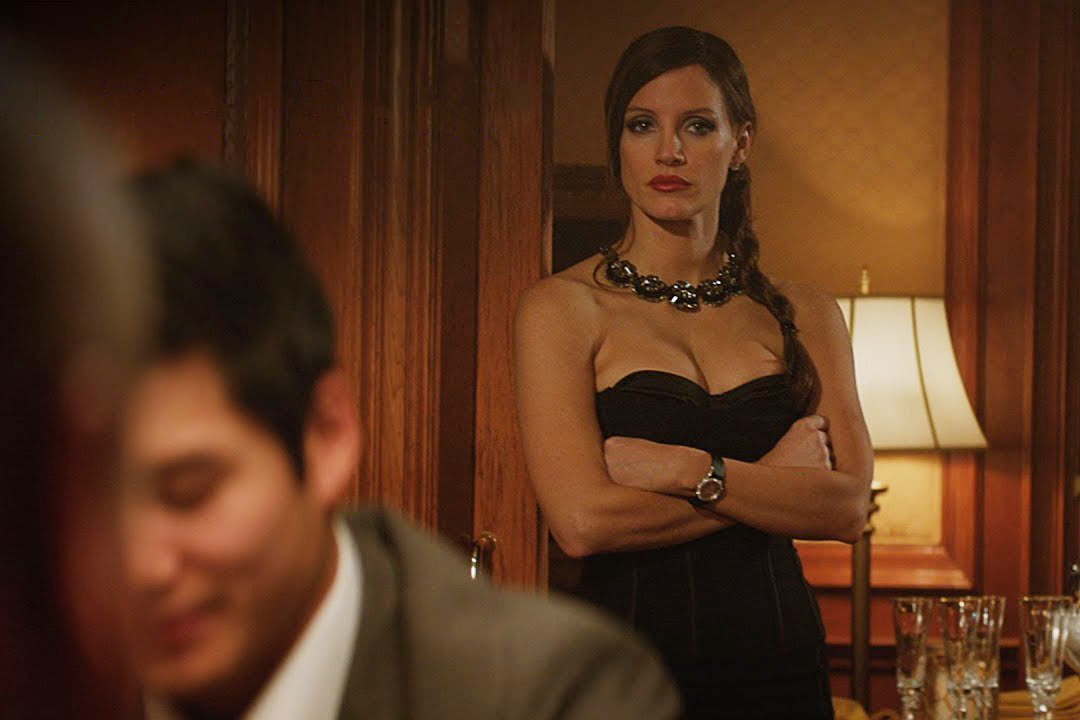
#winning
Molly’s Catharsis Is Unearned
This being an Aaron Sorkin script, there’s one other unfortunately recurring story quirk.
As in The Social Network, where Sorkin theorized that Facebook founder Mark Zuckerberg’s pathological drive to succeed stems from being rejected by a girl, Molly’s Game theorizes that Molly’s equally pathological drive to succeed stems from feeling rejected by her father. Thus, she keeps attracting unreliable men whom she can control, each of whom ultimately let her down.
This all adds up to a frankly stunning “catharsis by accident,” in which her father literally appears out of nowhere and has a heart-to-heart dialogue with her on a park bench while she’s waiting to find out if the feds will let her go free.

“What does tatonka have to do with any of this?”
I honestly spent this entire scene wondering if she was having a conversation with a phantom projection of her dad, a la George Clooney’s “surprise return” fakeout in Gravity, but no.
No, the film’s entire emotional catharsis hinges on a happy coincidence.
Molly’s father “just knows you’d be here,” at the skating rink in Rockefeller Center, and then explains her entire psychiatric history and motivation to her, providing her with the closure she never had until now.
Why?
Hey, why not?
(And I’m not the only one who IDed this scene as the movie’s Achilles heel.)
Okay, so what changes for Molly as a result of this conversation?
Well… nothing, actually.
And that’s because…
There’s No Character Arc
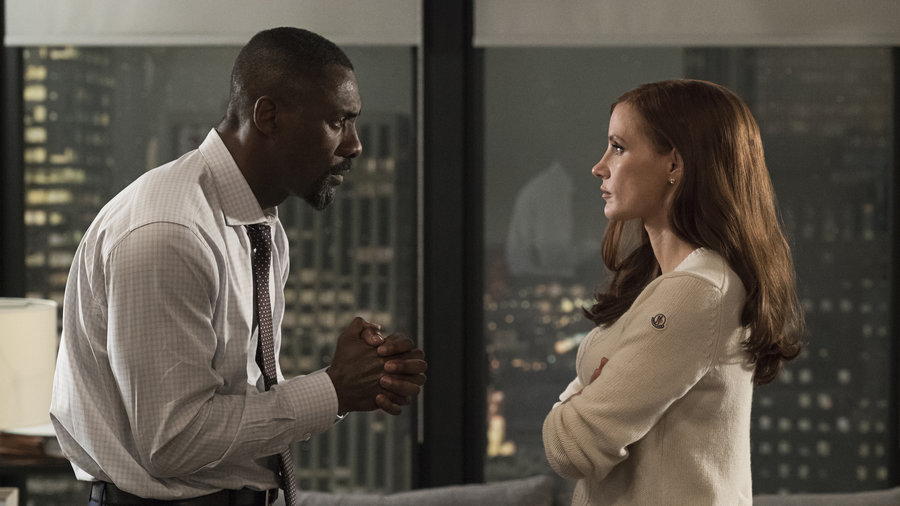
“Please change.” “No.” “… okay then.”
Molly Bloom is the same character at the beginning of this film as she is at the end.
Sure, she’s more famous (or infamous, depending on your POV).
Sure, she knows more about poker, money, the mafia, and the CIA.
And sure, her father finally stops treating her like a dick.
But if Molly herself learned anything from all this, it’s that she just needs to keep doing exactly what she’s being doing this whole time. (Except maybe in a more reputable industry.)
A story about a character who doesn’t have to change in order to win can be interesting.
It can even be satisfying.
But what it rarely becomes is a must-see story.
Like This Post?
You may also enjoy why Ocean’s 8 is the perfect feel-good heist movie, or where Blade Runner 2049 went wrong.
Or just subscribe to my newsletter and never miss an update! (I email it weekly-ish.)


3 Comments
Tim c · March 27, 2022 at 6:20 pm
Hmm good points, Molly is another Mary Sue type character who knows more than everyone and always comes up trumps (she can even dodge bagels being thrown at her).
But my main issue is to do with the romanticising and deification of her perfect moral character which is rewarded at the end. Albeit with an anti Wall Street message on top. Basically, she won’t give up hard drives of all conversations which will make the govt drop charges.
So let’s talk reality here. The film makes it clear that the people she was mixing with were the top echelons of society. Billionaires. Top politicians. Russian mafia. And basically hugely connected individuals.
Her admirable moral stance is clearly bullsh*t. Are we supposed to believe that:
A) The Russian mafia wouldn’t have threatened her to keep her mouth shut?
And/or….
B) That the movers and shakers of American society didn’t fix things behind the scenes to make sure the hard drive chats never saw the light of day? So they fixed it that nobody lost.
But no, it’s effing Wall Street corruption combined with Molly’s perfect character that wins the day
Yeah right.
Bridget C · January 12, 2019 at 2:11 am
I don’t understand why this piece entirely left out her drug addiction which was her major character flaw and she even repeats that multiple times in the movie lmao
Also to the person commenting above, I think her moral compass probably grew from her seeing how her mother was affected by immoral behavior (specifically cheating, which is why she kept saying she didn’t want to ruin families, a direct empathetical tie), and her morality also functioned as a method to succeed, since she was a competitive athlete whose father/coach would’ve instilled in her the practice of doing everything by the books and she goes against this belief system to rake the game which is where her character arc really begins. Also like you said, she repeatedly does immoral things for the sake of the game which she emphasizes and provides as proof that she’s not perfect or entirely selfless, but again, revealing the cheating is always where she draws the line because of her relationships with her parents.
I don’t think she was perfect either, she was deeply alone the whole film and from the beginning she never had a solid connection with any person other than her lawyer, so her career was all she had; therefore that was what’s at stake. She even says at one point that she desperately wants a family, which highlights to the audience how alone she is. She has debilitating depression that leads to drug addiction, and then her down fall. She’s highly skilled and intelligent, but I don’t think she was without flaw. It was clear to me that the stakes were high because even when she failed and bounced back, she was taken down a notch, and even though the notches were high up, it would still deeply affect her because she had nothing else all her life — no friends, no romantic interests, no career, nothing to satisfy the expectation of immense greatness her father held over her from the time she was a child. If she lost the game, it would be another devastation that might not hinder her success and motivation in the end, but would leave her with another deep emotional void she could never heal from but only try to patch it up with more success.
David B · October 22, 2018 at 2:51 pm
I also found the film frustrating for these reasons.
Forgetting about the screenwriting craft for a moment, I had an issue with Molly being essentially perfect because I didn’t buy it. Nothing in her character would give me reason for her to act like this Saint when it came to the contents of her hard-drives. She’s shown to someone who has been taught to win at all costs. She’s run a poker game that enabled gambling addicts and destroyed lives. She’s welcomed people from the Russian Mob into her game because she thought it could help her earn more money.
None of that suggests a character with such virtue and I couldn’t help thinking, “I don’t buy this.” I could understand her not wanting to give up the drives because of ego; because her reputation was so valuable for her. But instead, they keep having her give speeches about “all the lives that will be destroyed!” She didn’t seem to care about lives being destroyed when she was running an illegal gambling ring. She didn’t stop Harlan Eustice from ruining his marriage or cut him off before he lost 1.2 million in one night.
The film WANTS her to be perfect event though we as an audience know she’s not. That’s not how human beings ware built. And every time Jaffey gives a speech about what a wonderful person she is, I find myself wondering why the movie is so frightened to portray a complex character with legitimate faults.